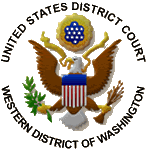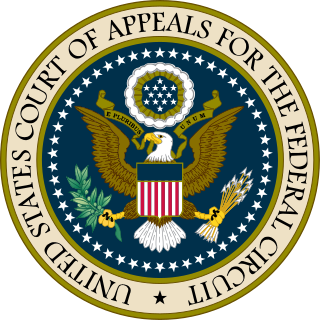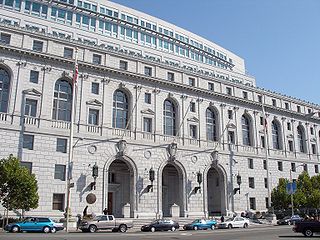Copyright issues
MAI contended that Peak's use of the MAI operating system constituted copyright infringement. MAI argued that the license agreement which permitted an end user to make a copy of the program for their own use did not extend to Peak because Peak was not the licensee and therefore had no rights under the license agreement.
The court agreed and granted partial summary judgment which prohibited Peak from continuing their method of operation. The court determined that a copy of a program made from a hard drive into RAM for purpose of executing the program was, in fact, a copy under the Copyright Act. The judges utilized the criteria set forth by 17 U.S.C. § 101, which states 'A work is "fixed" in a tangible medium of expression when its embodiment in a copy or phonorecord, by or under the authority of the author, is sufficiently permanent or stable to permit it to be perceived, reproduced, or otherwise communicated for a period of more than transitory duration.'
17 U.S.C. § 117 allows copies made as an essential step in utilizing the software to be made without permission of the copyright holder by the owner of a copy of the software. Nonetheless, the court believed that this clause did not apply because end users of MAI's software were mere licensees. The court also considered two additional facts: Peak had unlicensed copies of MAI's operating system at Peak's headquarters and the unlicensed loaning of computers featuring MAI's operating system to Peak's customers.
Based on the above facts, the court found that Peak was liable for copyright infringement.
Trade Secret misappropriation
Several employees left MAI and joined Peak, namely defendant Francis. When MAI's customers learned of their switch, several customers also switched their business based on previously developed business relationships. MAI contends that Peak misappropriated trade secrets, specifically their customer database, which MAI claims was developed and tweaked to give their customers the best experience. Peak argued that not only was the database not a trade secret, but also it did not take or utilize the database in any way. The court ruled that the database was in fact a trade secret but found that no portion of the customer data was taken by any former employees. Acknowledging that, the court stated "Merely informing a former employer's customers of a change of employment, without more, is not solicitation." However, Francis went beyond mere notification and visited former MAI customers and made personal phone calls to current MAI customers in order to encourage MAI customers to switch to Peak.
MAI also alleged that Peak misappropriated trade secrets by using FIBs (Field Information Bulletins) in their own business practices. MAI issued these FIBs internally which contained briefings for the latest MAI technology and practices. The court agreed with MAI's claim that these documents were trade secrets. However, the court found this to be an issue of material fact and could not validate MAI's claims based on the evidence provided.
The third point of trade secret misappropriation came from the MAI diagnostic software. MAI claimed that the diagnostic software contained important trade secrets that Peak misappropriated when loading a copy into RAM. Despite these claims, MAI failed to enumerate the specific trade secrets contained within the software and the court dismissed this claim.
Limitations on exclusive rights: Computer programs is the title of the current form of section 117 of the U.S. Copyright Act. In the United States copyright law, provides users with certain adaptation rights for computer software that they own.
USL v. BSDi was a lawsuit brought in New Jersey federal court in 1992 by Unix System Laboratories against Berkeley Software Design, Inc and the Regents of the University of California over intellectual property related to the Unix operating system; a culmination of the Unix wars. The case was settled out of court in 1994 after the judge expressed doubt in the validity of USL's intellectual property, with Novell and the University agreeing not to litigate further over the Berkeley Software Distribution (BSD).
Software copyright is the application of copyright in law to machine-readable software. While many of the legal principles and policy debates concerning software copyright have close parallels in other domains of copyright law, there are a number of distinctive issues that arise with software. This article primarily focuses on topics particular to software.

Computer Associates International, Inc. v. Altai, Inc., 982 F.2d 693 is a decision from the United States Court of Appeals for the Second Circuit that addressed to what extent non-literal elements of software are protected by copyright law. The court used and recommended a three-step process called the Abstraction-Filtration-Comparison test. The case was an appeal from the United States District Court for the Eastern District of New York in which the district court found that defendant Altai's OSCAR 3.4 computer program had infringed plaintiff Computer Associates' copyrighted computer program entitled CA-SCHEDULER. The district court also found that Altai's OSCAR 3.5 program was not substantially similar to a portion of CA-SCHEDULER 7.0 called SYSTEM ADAPTER, and thus denied relief as to OSCAR 3.5. Finally, the district court concluded that Computer Associates' state law trade secret misappropriation claim against Altai was preempted by the federal Copyright Act. The appeal was heard by Judges Frank Altimari, John Daniel Mahoney, and John M. Walker, Jr. The majority opinion was written by Judge Walker. Judge Altimari concurred in part and dissented in part. The Second Circuit affirmed the district court's ruling as to copyright infringement, but vacated and remanded its holding on trade secret preemption.

Vault Corporation v Quaid Software Ltd. 847 F.2d 255 is a case heard by the United States Court of Appeals for the Fifth Circuit that tested the extent of software copyright. The court held that making RAM copies as an essential step in utilizing software was permissible under §117 of the Copyright Act even if they are used for a purpose that the copyright holder did not intend. It also applied the "substantial noninfringing uses" test from Sony Corp. of America v. Universal City Studios, Inc. to hold that Quaid's software, which defeated Vault's copy protection mechanism, did not make Quaid liable for contributory infringement. It held that Quaid's software was not a derivative work of Vault's software, despite having approximately 30 characters of source code in common. Finally, it held that the Louisiana Software License Enforcement Act clause permitting a copyright holder to prohibit software decompilation or disassembly was preempted by the Copyright Act, and was therefore unenforceable.

The Digital Millennium Copyright Act (DMCA) is a 1998 United States copyright law that implements two 1996 treaties of the World Intellectual Property Organization (WIPO). It criminalizes production and dissemination of technology, devices, or services intended to circumvent measures that control access to copyrighted works. It also criminalizes the act of circumventing an access control, whether or not there is actual infringement of copyright itself. In addition, the DMCA heightens the penalties for copyright infringement on the Internet. Passed on October 12, 1998, by a unanimous vote in the United States Senate and signed into law by President Bill Clinton on October 28, 1998, the DMCA amended Title 17 of the United States Code to extend the reach of copyright, while limiting the liability of the providers of online services for copyright infringement by their users.

Religious Technology Center v. Netcom On-Line Communication Services, Inc., 907 F. Supp. 1361, is a U.S. district court case about whether the operator of a computer bulletin board service ("BBS") and Internet access provider that allows that BBS to reach the Internet should be liable for copyright infringement committed by a subscriber of the BBS. The plaintiff Religious Technology Center ("RTC") argued that defendant Netcom was directly, contributorily, and vicariously liable for copyright infringement. Netcom moved for summary judgment, disputing RTC's claims and raising a First Amendment argument and a fair use defense. The district court of the Northern District of California concluded that RTC's claims of direct and vicarious infringement failed, but genuine issues of fact precluded summary judgment on contributory liability and fair use.

Sega Enterprises Ltd. v. Accolade, Inc., 977 F.2d 1510, is a case in which the United States Court of Appeals for the Ninth Circuit applied American intellectual property law to the reverse engineering of computer software. Stemming from the publishing of several Sega Genesis games by video game publisher Accolade, which had disassembled Genesis software in order to publish games without being licensed by Sega, the case involved several overlapping issues, including the scope of copyright, permissible uses for trademarks, and the scope of the fair use doctrine for computer code.

MDY Industries, LLC v. Blizzard Entertainment, Inc and Vivendi Games, Inc., 629 F.3d 928, is a case decided by the United States Court of Appeals for the Ninth Circuit. At the district court level, MDY had been found liable under theories of copyright and tort law for selling software that contributed to the breach of Blizzard's End User License Agreement (EULA) and Terms of Use (ToU) governing the World of Warcraft video game software.
The court's ruling was appealed to the United States Court of Appeals for the Ninth Circuit, which reversed the district court in part, upheld in part, and remanded for further proceedings. The Court of Appeals ruled that for a software licensee's violation of a contract to constitute copyright infringement, there must be a nexus between the license condition and the licensor’s exclusive rights of copyright. However, the court also ruled, contrary to Chamberlain v. Skylink, that a finding of circumvention under the Digital Millennium Copyright Act does not require a nexus between circumvention and actual copyright infringement.

Vernor v. Autodesk, Inc. was a case in the United States District Court for the Western District of Washington regarding the applicability of the first-sale doctrine to software sold under the terms of so-called "shrinkwrap licensing." The court held that when the transfer of software to the purchaser materially resembled a sale it was, in fact, a "sale with restrictions on use" giving rise to a right to resell the copy under the first-sale doctrine. As such, Autodesk could not pursue an action for copyright infringement against Vernor, who sought to resell used versions of its software on eBay. The decision was appealed to the United States Court of Appeals for the Ninth Circuit, which issued a decision on September 10, 2010, reversing the first-sale doctrine ruling and remanding for further proceedings on the misuse of copyright claim. The Ninth Circuit's decision asserted that its ruling was compelled by Ninth Circuit precedent, but observed that the policy considerations involved in the case might affect motion pictures and libraries as well as sales of used software.

Comprehensive Technologies International, Inc. v. Software Artisans, Inc., 3 F.3d 730 was a case in which the U.S. Court of Appeals for the Fourth Circuit discussed legal tests for software copyright infringement, and ruled that trade secret misappropriation requires more than circumstantial evidence. The case also ruled on what terms may be reasonable and enforceable in non-compete agreements.

Lasercomb America, Inc. v. Reynolds, 911 F.2d 970 is an appeal filed in the United States Court of Appeals for the Fourth Circuit. Initially, Lasercomb filed an action against Holiday Steel for breach of contract, copyright infringement, misappropriation of trade secrets, fraud, unfair competition, and false designation of origin. The United States District Court ruled in favor of Lasercomb, awarding them punitive damages and actual damages for fraud, rejecting the defense of copyright misuse. On appeal, based on a recognition of the similarity to patent misuse, the holding was reversed, deeming the language contained in the license agreement unreasonable.

Cartoon Network, LP v. CSC Holdings, Inc., 536 F.3d 121, was a United States Court of Appeals for the Second Circuit decision regarding copyright infringement in the context of DVR systems operated by cable television service providers. It is notable for partially overturning the Ninth Circuit precedent MAI Systems Corp. v. Peak Computer, Inc., regarding whether a momentary data stream is a "copy" per copyright law.

Facebook, Inc. v. Power Ventures, Inc. is a lawsuit brought by Facebook in the United States District Court for the Northern District of California alleging that Power Ventures Inc., a third-party platform, collected user information from Facebook and displayed it on their own website. Facebook claimed violations of the CAN-SPAM Act, the Computer Fraud and Abuse Act ("CFAA"), and the California Comprehensive Computer Data Access and Fraud Act. According to Facebook, Power Ventures Inc. made copies of Facebook's website during the process of extracting user information. Facebook argued that this process causes both direct and indirect copyright infringement. In addition, Facebook alleged this process constitutes a violation of the Digital Millennium Copyright Act ("DMCA"). Finally, Facebook also asserted claims of both state and federal trademark infringement, as well as a claim under California's Unfair Competition Law ("UCL").

Bowers v. Baystate Technologies, 320 F.3d 1317, was a U.S. Court of Appeals Federal Circuit case involving Harold L. Bowers and Baystate Technologies over patent infringement, copyright infringement, and breach of contract. In the case, the court found that Baystate had breached their contract by reverse engineering Bower's program, something expressly prohibited by a shrink wrap license that Baystate entered into upon purchasing a copy of Bower's software. This case is notable for establishing that license agreements can preempt fair use rights as well as expand the rights of copyright holders beyond those codified in US federal law.

Adobe Systems, Inc. v. Southern Software, Inc. was a case in the United States District Court for the Northern District of California regarding the copyrightability of digitized typefaces. The case is notable since typeface designs in general are not protected under United States copyright law, as determined in Eltra Corp. v. Ringer. Since that case, the United States Copyright Office has published policy decisions acknowledging the registration of computer programs that generate typefaces. In this case, the court held that Adobe's Utopia font was protectable under copyright and Southern Software, Inc.'s Veracity font was substantially similar and infringing.

Asset Marketing Systems, Inc. v. Gagnon was a case heard by the United States Court of Appeals for the Ninth Circuit regarding implied licenses to use, modify and retain the source code of computer programs, and the enforceability of non-competition agreements. The court affirmed the ruling from the United States District Court for the Southern District of California that Kevin Gagnon, a software contractor doing business as "Mr. Computer", had implicitly granted Asset Marketing Systems (AMS) an unlimited license to use, modify and retain the source code of the programs that Gagnon created. The case is notable because the Court held that an implied software license is granted when the licensee requests the creation of a work, the licensor creates and delivers the work, and the licensor intends the licensee to copy and distribute the work.

Ho v. Taflove is a Seventh Circuit case about the copyrightability of scientific data. In 2011, the Seventh Circuit affirmed a 2009 decision of the United States District Court for the Northern District of Illinois holding that the expression of ideas can be copyrighted but not the ideas themselves.

Silvaco Data Systems v. Intel Corp was a trade secrets case heard before the California Court of Appeal for the Sixth District. Silvaco sued Intel for misappropriation of trade secrets because Intel used software produced by a third-party that had misappropriated Silvaco's trade secrets. The appeals court affirmed the decision of the trial court to grant summary judgment in favor of Intel, finding that merely using infringing software does not constitute a trade secret infringement in itself.
Open source license litigation involves lawsuits surrounding open-source licensed software. Many of the legal rights of open source software licensors enforceable against users violating licensing agreements are untested by the U.S. legal system. Free and open source software (FOSS) is distributed under a variety of free-software licenses, which are unique among other software licenses. Legal action against open source licenses involves questions about their validity and enforceability.











